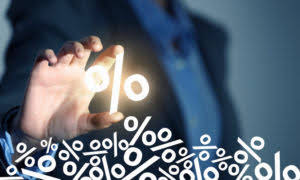- November 27, 2024
- Bookkeeping
- Comments : 0
Difference Between Net and Gross: Key Concepts for Better Financial Understanding

Both are important questions, though they have very different answers. The most significant difference is gross income is almost always larger, because it doesn’t reflect the additional expenses that result in net income. Beyond that, net income is the most widely used measure of a business’s success, while gross income offers insight into the efficiency of a business’s operations.
Difference Between Net and Gross: Key Concepts for Better Financial Understanding

Need help determining selling prices for your products in order to save money and increase profits? Gross income appears on income statements, also called profit-and-loss statements. Sales or revenue, also known as the top line, is the first entry on an income statement. Below that is the line for the cost of goods sold, and below that is gross income. A bank account interest, inheritance from a relative or friend, dividends, and gambling winnings are additional sources of gross income that you should also include in your tax report. But according to federal government regulations, life insurance proceeds and workers’ compensation payments are non-taxable.

Gross vs Net Income: Differences and How to Calculate

A gross annual salary of $70,000 could result in only $55,000 in net pay, depending on your tax bracket—affecting housing affordability or savings. Without net sales a clear grasp, you’re at risk of overassigning income for commitments. Net profit indicates the actual earnings of a business after subtracting all expenses, including operating costs, taxes, and interest. If a company earns $1 million in revenue but expenses total $800,000, the net profit remains $200,000.
- For example, a mortgage’s gross rate of 5% might translate to a net rate of 5.25% after administrative fees, which affects affordability calculations.
- Net income will show you how much money your business is making or losing over a given period of time.
- Beyond that, net income is the most widely used measure of a business’s success, while gross income offers insight into the efficiency of a business’s operations.
- It empowers you to evaluate costs, profits, and earnings with clarity.
- Investors, lenders, and analysts look for growth in a business’s profitability to compare it to other companies.
- By understanding how gross income and net income are defined, you can better understand their key differences.
Is net income before or after taxes?
Gross income and net income are widely used profitability measures in business, and both are standard line items on a business’s income statement. Investors, lenders, and analysts look for growth in a business’s profitability to compare it to other companies. Similar to gross income, a business’s net income can be expressed as a percentage of sales or revenue—the net profit margin. For an individual, gross Accounting For Architects income is wages and salary before any deductions, tax withholding, and pretax contributions to retirement or health care savings plans.

Net Vs Gross Profit
- Businesses must distinguish between net and gross for accurate planning.
- If a company earns $1 million in revenue but expenses total $800,000, the net profit remains $200,000.
- By recognizing how net and gross apply to income, expenses, and pricing, you can avoid common misconceptions that lead to financial missteps.
- Without a clear grasp, you’re at risk of overassigning income for commitments.
- The net and gross income results help businesses evaluate their performance on a corporate level.
Companies often make financial decisions based on the net income they generate, including expanding, hiring, borrowing, paying dividends, or making profit distributions to owners. Lenders and investors usually scrutinize a business’s net income when deciding to approve loans or offer equity capital. Individual gross why is net income lower than gross income? income includes the salary (and bonuses) you receive from an employer or clients, depending on if you’re working as a freelancer or standard employee.
- A business reporting $1M in gross revenue might only have $850,000 in net revenue after returns and allowances.
- The most significant difference is gross income is almost always larger, because it doesn’t reflect the additional expenses that result in net income.
- In reality, the type of deduction varies based on the context—such as taxes for salaries or operating expenses for businesses.
- For example, as a business, gross income can indicate the revenue generated year over year and provide a perspective on how your business is doing.
- Gross income and net income are two key concepts in financial management.




